#social experiments
Text
„At, like, 10 subs I'll be taking my balls out and just throwing them all over the keyboard. And I'll be typing like it's, uh, typing stream, this typing wizard, but with my nuts. So I'll be using my left nut, we'll be starting at F and my right nut will be starting at J.”
We all love Charlie Slimecicle so here's lil piece of art of interrupted completely normal color reaction stream

It somehow took way to longer then I expected qwq
#fanart#digital art#generation loss#generation loss spoilers#generation loss ranboo#generation loss fanart#generation loss charlie#genloss#genloss fanart#genloss spoilers#genloss ranboo#genloss charlie#gl!ranboo#gl!charlie#tse#the social experiments#social experiments#ranboo#charlie slimecicle#art#artists on tumblr#my art
35 notes
·
View notes
Text

Our favorite little mascot
17 notes
·
View notes
Text

If you knew me, I am NOT one for public appearances, though I believe this is a Fantastic, yet Simple start to realize Peace is possible among All despite any aspect of our differences. We do NOT have to agree on everything to have a respect, understanding, and love for one another. I can honestly say I would do this. I do not fear anyone. I believe all has a story to tell & they are longing for someone to listen. I mean really hear as if you were in that moment with them. We should all do this for each other. I would love to see this posted everywhere so the stories may begin again!
I leave you with these 4 quotes:
"Most people do not listen with the intent to understand; they listen with the intent to reply." -Stephen R. Covey
"We are given one mouth so that we can listen twice as much as we speak. Listen or thy tongue will keep thee deaf." -Native American Indian Proverb
"It is the mark of an educated mind to be able to entertain a thought without accepting it." -Aristotle
Before you speak, your words should pass through 3 gates: Is it True?, Is it Kind?, Is it Necessary? -Arabian Proverb
✿Please Share ✿
#writers#jdr#withinthesplendor#my thoughts#quotes#social experiments#experience#your story matters#fear not#ripple effects
2 notes
·
View notes
Text
The New York Times: LinkedIn Ran Social Experiments on 20 Million Users Over Five Years
LinkedIn ran experiments on more than 20 million users over five years that, while intended to improve how the platform worked for members, could have affected some people’s livelihoods, according to a new study.
In experiments conducted around the world from 2015 to 2019, Linkedin randomly varied the proportion of weak and strong contacts suggested by its “People You May Know” algorithm — the company’s automated system for recommending new connections to its users. Researchers at LinkedIn, M.I.T., Stanford and Harvard Business School later analyzed aggregate data from the tests in a study published this month in the journal Science.
LinkedIn’s algorithmic experiments may come as a surprise to millions of people because the company did not inform users that the tests were underway.
Tech giants like LinkedIn, the world’s largest professional network, routinely run large-scale experiments in which they try out different versions of app features, web designs and algorithms on different people. The longstanding practice, called A/B testing, is intended to improve consumers’ experiences and keep them engaged, which helps the companies make money through premium membership fees or advertising. Users often have no idea that companies are running the tests on them. (The New York Times uses such tests to assess the wording of headlines and to make decisions about the products and features the company releases.)
But the changes made by LinkedIn are indicative of how such tweaks to widely used algorithms can become social engineering experiments with potentially life-altering consequences for many people. Experts who study the societal impacts of computing said conducting long, large-scale experiments on people that could affect their job prospects, in ways that are invisible to them, raised questions about industry transparency and research oversight.
Did you know you can share 10 gift articles a month, even with nonsubscribers?
Share this article.“The findings suggest that some users had better access to job opportunities or a meaningful difference in access to job opportunities,” said Michael Zimmer, an associate professor of computer science and the director of the Center for Data, Ethics and Society at Marquette University. “These are the kind of long-term consequences that need to be contemplated when we think of the ethics of engaging in this kind of big data research.”
The study in Science tested an influential theory in sociology called “the strength of weak ties,” which maintains that people are more likely to gain employment and other opportunities through arms-length acquaintances than through close friends.
The researchers analyzed how LinkedIn’s algorithmic changes had affected users’ job mobility. They found that relatively weak social ties on LinkedIn proved twice as effective in securing employment as stronger social ties.
In a statement, Linkedin said during the study it had “acted consistently with” the company’s user agreement, privacy policy and member settings. The privacy policy notes that LinkedIn uses members’ personal data for research purposes. The statement added that the company used the latest, “non-invasive” social science techniques to answer important research questions “without any experimentation on members.”
Daily business updates The latest coverage of business, markets and the economy, sent by email each weekday.
LinkedIn, which is owned by Microsoft, did not directly answer a question about how the company had considered the potential long-term consequences of its experiments on users’ employment and economic status. But the company said the research had not disproportionately advantaged some users.
The goal of the research was to “help people at scale,” said Karthik Rajkumar, an applied research scientist at LinkedIn who was one of the study’s co-authors. “No one was put at a disadvantage to find a job.”
Sinan Aral, a management and data science professor at M.I.T. who was the lead author of the study, said LinkedIn’s experiments were an effort to ensure that users had equal access to employment opportunities.
“To do an experiment on 20 million people and to then roll out a better algorithm for everyone’s jobs prospects as a result of the knowledge that you learn from that is what they are trying to do,” Professor Aral said, “rather than anointing some people to have social mobility and others to not.” (Professor Aral has conducted data analysis for The New York Times, and he received a research fellowship grant from Microsoft in 2010.)
Experiments on users by big internet companies have a checkered history. Eight years ago, a Facebook study describing how the social network had quietly manipulated what posts appeared in users’ News Feeds in order to analyze the spread of negative and positive emotions on its platform was published. The weeklong experiment, conducted on 689,003 users, quickly generated a backlash.
The Facebook study, whose authors included a researcher at the company and a professor at Cornell, contended that people had implicitly consented to the emotion manipulation experiment when they had signed up for Facebook. “All users agree prior to creating an account on Facebook,” the study said, “constituting informed consent for this research.”
Critics disagreed, with some assailing Facebook for having invaded people’s privacy while exploiting their moods and causing them emotional distress. Others maintained that the project had used an academic co-author to lend credibility to problematic corporate research practices.
Cornell later said its internal ethics board had not been required to review the project because Facebook had independently conducted the study and the professor, who had helped design the research, had not directly engaged in experiments on human subjects.

The LinkedIn professional networking experiments were different in intent, scope and scale. They were designed by Linkedin as part of the company’s continuing efforts to improve the relevance of its “People You May Know” algorithm, which suggests new connections to members.
The algorithm analyzes data like members’ employment history, job titles and ties to other users. Then it tries to gauge the likelihood that a LinkedIn member will send a friend invite to a suggested new connection as well as the likelihood of that new connection accepting the invite.
For the experiments, LinkedIn adjusted its algorithm to randomly vary the prevalence of strong and weak ties that the system recommended. The first wave of tests, conducted in 2015, “had over four million experimental subjects,” the study reported. The second wave of tests, conducted in 2019, involved more than 16 million people.
During the tests, people who clicked on the “People You May Know” tool and looked at recommendations were assigned to different algorithmic paths. Some of those “treatment variants,” as the study called them, caused LinkedIn users to form more connections to people with whom they had only weak social ties. Other tweaks caused people to form fewer connections with weak ties.
Whether most LinkedIn members understand that they could be subject to experiments that may affect their job opportunities is unknown.
LinkedIn’s privacy policy says the company may “use the personal data available to us” to research “workplace trends, such as jobs availability and skills needed for these jobs.” Its policy for outside researchers seeking to analyze company data clearly states that those researchers will not be able to “experiment or perform tests on our members.”
But neither policy explicitly informs consumers that LinkedIn itself may experiment or perform tests on its members.
In a statement, LinkedIn said, “We are transparent with our members through our research section of our user agreement.”
In an editorial statement, Science said, “It was our understanding, and that of the reviewers, that the experiments undertaken by LinkedIn operated under the guidelines of their user agreements.”
After the first wave of algorithmic testing, researchers at LinkedIn and M.I.T. hit upon the idea of analyzing the outcomes from those experiments to test the theory of the strength of weak ties. Although the decades-old theory had become a cornerstone of social science, it had not been rigorously proved in a large-scale prospective trial that randomly assigned people to social connections of different strengths.
The outside researchers analyzed aggregate data from LinkedIn. The study reported that people who received more recommendations for moderately weak contacts generally applied for and accepted more jobs — results that dovetailed with the weak-tie theory.
In fact, relatively weak contacts — that is, people with whom LinkedIn members shared only 10 mutual connections — proved much more productive for job hunting than stronger contacts with whom users shared more than 20 mutual connections, the study said.
A year after connecting on LinkedIn, people who had received more recommendations for moderately weak-tie contacts were twice as likely to land jobs at the companies where those acquaintances worked compared with other users who had received more recommendations for strong-tie connections.
“We find that these moderately weak ties are the best option for helping people find new jobs and much more so than stronger ties,” said Mr. Rajkumar, the Linkedin researcher.
The 20 million users involved in LinkedIn’s experiments created more than 2 billion new social connections and completed more than 70 million job applications that led to 600,000 new jobs, the study reported. Weak-tie connections proved most useful for job seekers in digital fields like artificial intelligence, while strong ties proved more useful for employment in industries that relied less on software, the study said.
LinkedIn said it had applied the findings about weak ties to several features including a new tool that notifies members when a first- or second-degree connection is hiring. But the company has not made study-related changes to its “People You May Know” feature.
Professor Aral of M.I.T. said the deeper significance of the study was that it showed the importance of powerful social networking algorithms — not just in amplifying problems like misinformation but also as fundamental indicators of economic conditions like employment and unemployment.
Catherine Flick, a senior researcher in computing and social responsibility at De Montfort University in Leicester, England, described the study as more of a corporate marketing exercise.
“The study has an inherent bias,” Dr. Flick said. “It shows that, if you want to get more jobs, you should be on LinkedIn more.”
#LinkedIn Ran Social Experiments on 20 Million Users Over Five Years#linkedin#social experiments#corporate marketing#stealing personal information#data theft#data leakage
2 notes
·
View notes
Text
the fact that shakespeare was a playwright is sometimes so funny to me. just the concept of the "greatest writer of the English language" being a random 450-year-old entertainer, a 16th cent pop cultural sensation (thanks in large part to puns & dirty jokes & verbiage & a long-running appeal to commoners). and his work was made to be watched not read, but in the classroom teachers just hand us his scripts and say "that's literature"
just...imagine it's 2450 A.D. and English Lit students are regularly going into 100k debt writing postdoc theses on The Simpsons screenplays. the original animation hasn't even been preserved, it's literally just scripts and the occasional SDH subtitles.txt. they've been republished more times than the Bible
#due to the Great Data Decay academics write viciously argumentative articles on which episodes aired in what order#at conferences professors have known to engage in physically violent altercations whilst debating the air date number of household viewers#90% of the couch gags have been lost and there is a billion dollar trade in counterfeit “lost copies”#serious note: i'll be honest i always assumed it was english imperialism that made shakespeare so inescapable in the 19th/20th cent#like his writing should have become obscure at the same level of his contemporaries#but british imperialists needed an ENGLISH LANGUAGE (and BRITISH) writer to venerate#and shakespeare wrote so many damn things that there was a humongous body of work just sitting there waiting to be culturally exploited...#i know it didn't happen like this but i imagine a English Parliament House Committee Member For The Education Of The Masses or something#cartoonishly stumbling over a dusty cobwebbed crate labelled the Complete Works of Shakespeare#and going 'Eureka! this shall make excellent propoganda for fabricating a national identity in a time of great social unrest.#it will be a cornerstone of our elitist educational institutions for centuries to come! long live our decaying empire!'#'what good fortune that this used to be accessible and entertaining to mainstream illiterate audience members...#..but now we can strip that away and make it a difficult & alienating foundation of a Classical Education! just like the latin language :)'#anyway maybe there's no such thing as the 'greatest writer of x language' in ANY language?#maybe there are just different styles and yes levels of expertise and skill but also a high degree of subjectivity#and variance in the way that we as individuals and members of different cultures/time periods experience any work of media#and that's okay! and should be acknowledged!!! and allow us to give ourselves permission to broaden our horizons#and explore the stories of marginalized/underappreciated creators#instead of worshiping the List of Top 10 Best (aka Most Famous) Whatevers Of All Time/A Certain Time Period#anyways things are famous for a reason and that reason has little to do with innate “value”#and much more to do with how it plays into the interests of powerful institutions motivated to influence our shared cultural narratives#so i'm not saying 'stop teaching shakespeare'. but like...maybe classrooms should stop using it as busy work that (by accident or designs)#happens to alienate a large number of students who could otherwise be engaging critically with works that feel more relevant to their world#(by merit of not being 4 centuries old or lacking necessary historical context or requiring untaught translation skills)#and yeah...MAYBE our educational institutions could spend less time/money on shakespeare critical analysis and more on...#...any of thousands of underfunded areas of literary research i literally (pun!) don't know where to begin#oh and p.s. the modern publishing world is in shambles and it would be neat if schoolwork could include modern works?#beautiful complicated socially relevant works of literature are published every year. it's not just the 'classics' that have value#and actually modern publications are probably an easier way for students to learn the basics. since lesson plans don't have to include the#important historical/cultural context many teens need for 20+ year old media (which is older than their entire lived experience fyi)
23K notes
·
View notes
Text
(Haobin) free hugs! (blind trust experiment)
hanbin conducts a social experiment where he stands in the middle of a busy shopping district to offer free hugs to strangers while blindfolded. he hadn't taken into account the possibility of someone breaking down in his arms.
♡♡♡
"can i get your name?" he asks. "i'm hanbin."
"hao," the guy manages to answer through his sobs.
"hao," hanbin says. "wanna talk about it?"
#free hugs! (blind trust experiment)#Haobin#Hanbin#Sung Hanbin#Zhanghao#Zhang Hao#ZB1#Zerobaseone#strangers to lovers#social experiments#fluffy#hurt/comfort#youtuber!Hanbin#music teacher!Zhanghao
0 notes
Text
Reblog for a larger sample size for no sample size at all, because obviously nobody will vote
#polls#poll#tumblr polls#dandelion polls#social experiment#sorry y'all I couldn't resist#I have no idea if my own restraint will pass the test
78K notes
·
View notes
Text
It's actually kind of impressive how ill-conceived this whole "Notes Preview" business is. At a single stroke, it's been rendered impossible to curate one's experience even on one's own dashboard – now it doesn't matter that you've carefully followed a group of blogs you can trust not to reblog noxious bullshit, because with every post that crosses your dash there's now a chance that Tumblr will automatically append some random asshole's opinion about that post, in a way that neither you nor the person you're following can predict. Bravo.
36K notes
·
View notes
Text
neurotypicals will SWEAR they support you but the second you unmask they stare at you weirdly and question why you’re acting differently
thanks for supporting me! i feel so seen right now!! let me just put this back on…
#neurodivergent#autism#autistic experiences#autistic things#being autistic#adhd problems#neurodiverse stuff#neurodiversity#masking#social issues
6K notes
·
View notes
Text
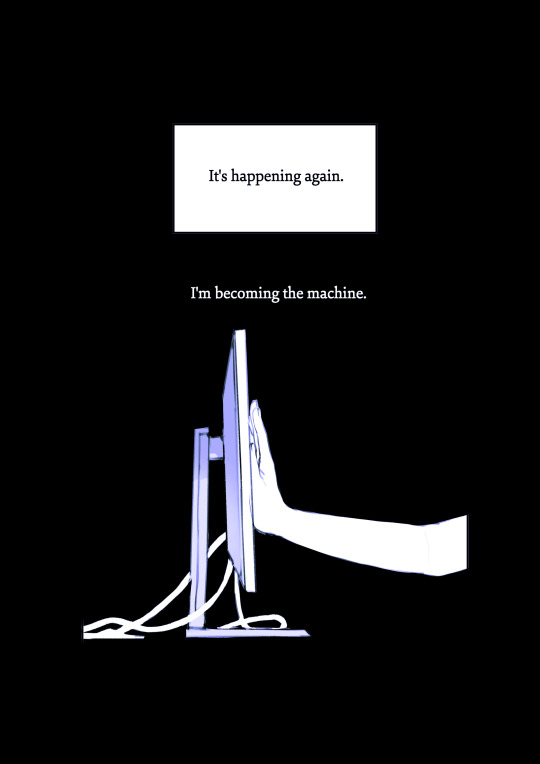
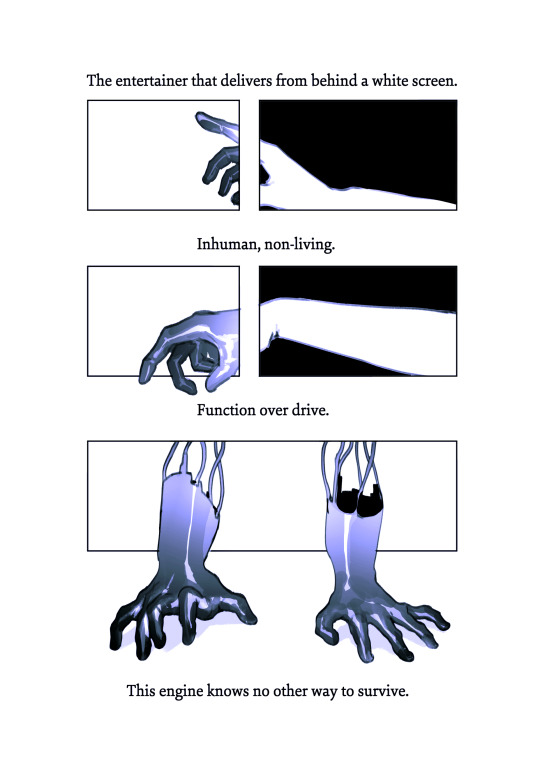
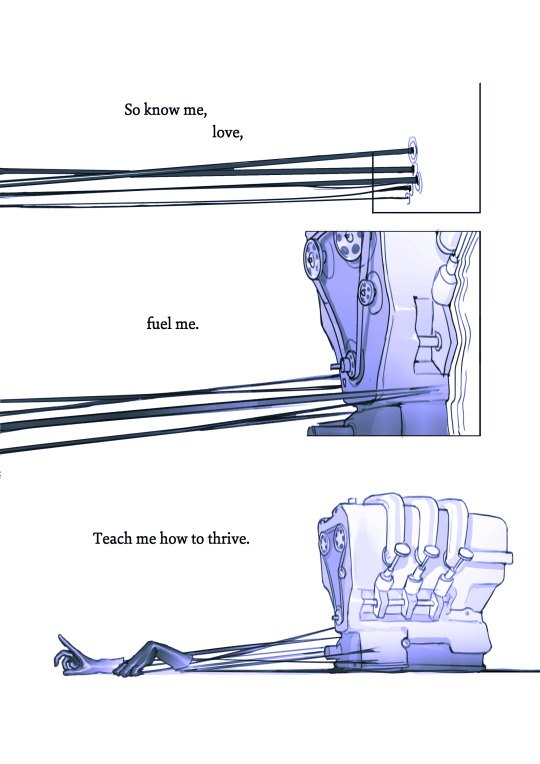
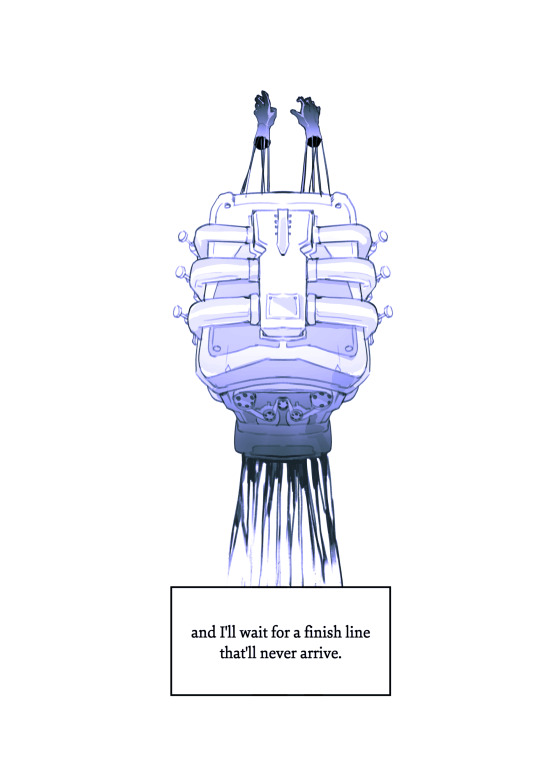
the machine.
a comic about being a 'creator' online.
creative notes:

#in light of recent online 'success' i feel like this may come off as ungrateful#just wanna say that all the comics i make in this series are written about experiences i felt in 2022#which was a rough year personally and creatively#and i very luckily don't feel this way anymore#and this also isnt to shame anyone who DOES feel this way#its easy to start to feel like all you are is a vending machine of art#and like thats all you are to people#theres nothing human to you#it can be a bit of a pit#and on some level this damage is self inflicted but social media really doesnt help that feeling#this wont work for everyone but having friends around you who you can talk to about stuff that ISNT art#going outside for dinner#maybe walking around#its good for when you need that feeling to go away even a bit temporarily#youre a human being#not a mindless content creation machine#and i hope anyone who feels like this now can get to a place where they have a healthier relationship with their own work#good luck to all of you#and thank you for reading#comic art#its 10pm#stillindigo art
13K notes
·
View notes
Text

What if gl!ranboo took off his mask
#generation loss#generation loss fanart#genloss#ranboo#ranboo fanart#genlosscabin#generation loss the social experiments
6K notes
·
View notes
Text
anyone else have multiple traumatic memories associated specifically with holidays/family vacations? because that is a topic I never see discussed in all the So You Had A Shitty Childhood, Now What? self-help books i've been reading. but for me, it was a significant thing. and the more i think about it the more it seems like this would be an (unfortunately) common experience. would be grateful to hear if this matches other peoples' experiences...
#not a shitpost#serious post#ask to tag#tw trauma#cptsd#c-ptsd#and if so we should TALK about it#because it means there are a whole group of survivors out there whose mental health regularly worsens during holidays#like i know i am most certainly not the only person who feels an undefined Dread hanging over christmas/my birthday/july 4 etc#bc too many shitty things happened during those times and now my brain is hypervigilant bc traditionally these are the Danger Times#and this seems like it would be particularly common for survivors of abusive/dysfunctional households (aka most people with c-ptsd)#because holidays/vacations typically mean 1) the whole family is together/being forced to interact#2) and undergoing external stressors e.g. travel/relatives aka 'outsiders' visiting/routines & coping mechanisms being interrupted etc#3) there is social pressure for this to be a Fun Family Bonding Experience which only highlights the cracks in the foundation#and exposes the common Everything Is Fine/We Are A Happy Family lie#4) the cognitive dissonance of feeling tired/anxious/stressed/afraid during a time when you are 'supposed' to be Making Good Memories#and then everyone is angry/tired/anxious/triggered and things boil over and something or someone goes Very Wrong#weird that i'm posting this in october when halloween is...sort of the ONLY holiday i have only good and happy feelings towards#i got lucky there#also i have positive feelings towards Labor Day but that's for socialist reasons
4K notes
·
View notes
Text

The Social Experiments || Episode 1: The Spirit of The Cabin
#generation loss#generation loss fanart#genloss#ranboo#ranboo fanart#traditional art#genlosscabin#generation loss the social experiments#the spirit of the cabin
6K notes
·
View notes
Text
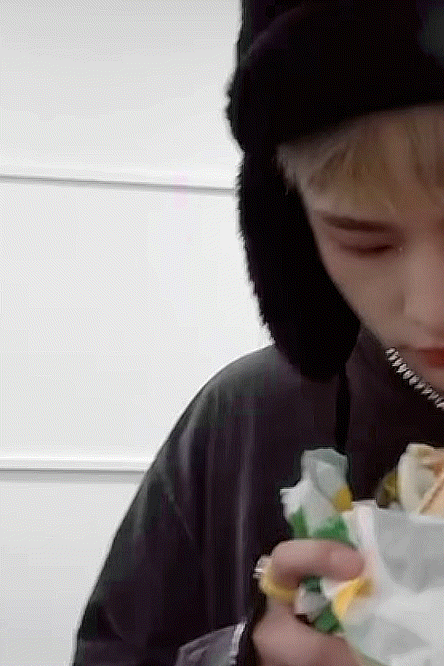


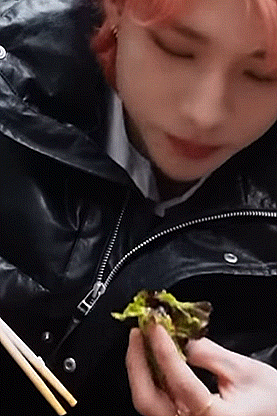



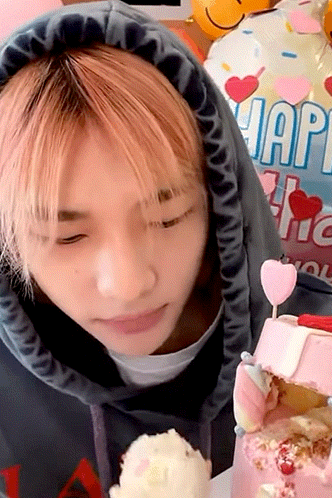



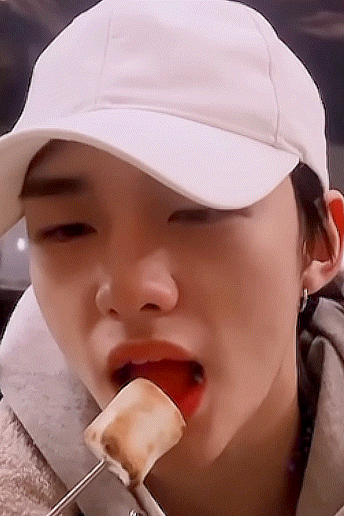
DAILY HYUNJIN GIFS UNTIL HIS BDAY: love you and all your little things - the world’s most saddest eater
#hyunjin#skz#stray kids#bystay#gifs#staydaily#it’s painfully tasty..#i feel like im watching some kind of social experiment whenever he does this like#there must be some kind of explanation and it should be studied#maybe even teachers should teach about it in schools. painters should paint about it#u know the drill
1K notes
·
View notes